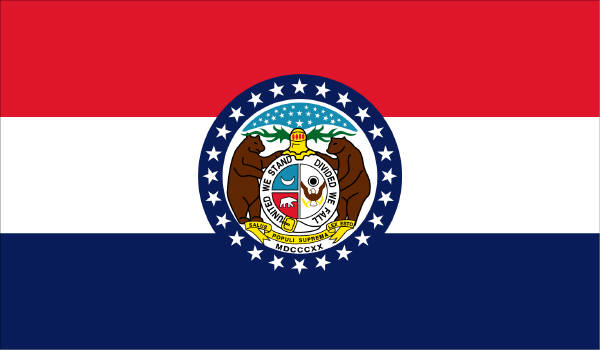Missouri Proposition 11, Workmen's Compensation Referendum (1922)
| Missouri Proposition 11 | |
|---|---|
| Election date |
|
| Topic Administrative organization and Workers' compensation laws |
|
| Status |
|
| Type Veto referendum |
Origin |
Missouri Proposition 11 was on the ballot as a veto referendum in Missouri on November 7, 1922. It was defeated.
A "yes" vote supported establishing a workmen's compensation and creating a commission to administer it. |
A "no" vote opposed establishing a workmen's compensation and creating a commission to administer it. |
Election results
|
Missouri Proposition 11 |
||||
|---|---|---|---|---|
| Result | Votes | Percentage | ||
| Yes | 288,384 | 44.75% | ||
| 356,001 | 55.25% | |||
-
- Results are officially certified.
- Source
Text of measure
Ballot title
The ballot title for Proposition 11 was as follows:
| “ | PROPOSITION NUMBER 11 REFERENDUM ORDERED BY THE PETITION OF THE PEOPLE. An Act providing for a system of workmen's compensation and creating a commission to administer the same. House Bill No. 73. | ” |
Path to the ballot
A veto referendum is a citizen-initiated ballot measure that asks voters whether to uphold or repeal an enacted law. This type of ballot measure is also called statute referendum, popular referendum, people's veto, or citizen's veto. There are 23 states that allow citizens to initiate veto referendums.
In Missouri, the number of signatures required for a veto referendum is based on the number of votes cast for governor in the state's most recent gubernatorial election. In two-thirds of Missouri's congressional districts, proponents must collect signatures equal to 5% of the gubernatorial vote for veto referendums. A simple majority vote is required for voter approval.
See also
External links
Footnotes
State of Missouri Jefferson City (capital) | |
|---|---|
| Elections |
What's on my ballot? | Elections in 2026 | How to vote | How to run for office | Ballot measures |
| Government |
Who represents me? | U.S. President | U.S. Congress | Federal courts | State executives | State legislature | State and local courts | Counties | Cities | School districts | Public policy |



